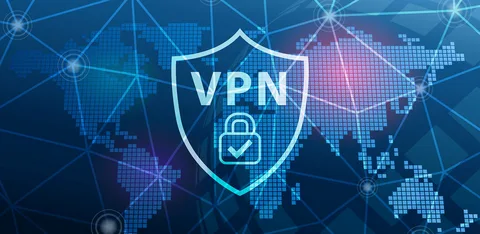In today’s digital landscape, securing sensitive data and ensuring seamless connectivity for remote teams is crucial for businesses of all sizes. As companies navigate these challenges, many are turning to VPN solutions for business to enhance security and facilitate remote work. However, before committing to a VPN solution, it’s essential to conduct a thorough cost-benefit analysis. This article will explore the costs associated with business VPNs, the benefits they offer, and how to evaluate whether investing in a VPN solution is worthwhile for your organization.
Understanding VPN Solutions for Business
VPN, or Virtual Private Network, is a technology that creates a secure, encrypted connection between a user’s device and the internet. This technology is particularly beneficial for businesses as it allows remote employees to access company resources securely, protects sensitive information, and enables secure communications over potentially untrusted networks.
Why Consider a VPN?
With increasing concerns about data breaches, cyber threats, and regulatory compliance, businesses are prioritizing security. VPN solutions for business not only safeguard sensitive data but also provide a secure means for employees to connect from various locations. However, implementing these solutions comes with associated costs that organizations must consider.
Costs of Business VPN Solutions
When evaluating VPN solutions for business, understanding the costs involved is critical. Here are the primary costs to consider:
1. Subscription Fees
Most commercial VPN providers charge a subscription fee, which may vary based on features, number of users, and contract length. These fees can be monthly or annually, and organizations should evaluate different pricing tiers to find a plan that meets their needs without overspending.
2. Implementation Costs
Integrating a VPN solution into existing IT infrastructure may require additional resources. This could involve hiring IT professionals for setup, configuration, and testing. Depending on the complexity of the existing systems, implementation costs can vary significantly.
3. Training Expenses
Employees must be trained to use the VPN effectively. Training programs, whether conducted internally or through external providers, can incur costs. Investing in proper training ensures that employees can utilize the VPN’s features fully, maximizing its potential benefits.
4. Ongoing Maintenance and Support
After implementation, businesses must consider ongoing maintenance costs. This includes technical support, software updates, and potential upgrades. Some providers offer 24/7 support, which can add to the overall cost but may be necessary for businesses requiring immediate assistance.
5. Potential Downtime
Implementing a new VPN may result in temporary disruptions to normal operations. Businesses should account for potential downtime during the transition period, which can affect productivity and lead to financial losses.
Benefits of Business VPN Solutions
While the costs of VPN solutions for business can add up, the benefits often outweigh these expenses. Here are some key advantages:
1. Enhanced Data Security
The primary benefit of a VPN is the encryption it provides. This ensures that sensitive data transmitted over the internet is secure from interception. With an increasing number of cyber threats, investing in a VPN can significantly reduce the risk of data breaches.
2. Secure Remote Access
As remote work becomes more prevalent, businesses need solutions that allow employees to access company resources securely from various locations. A VPN enables remote workers to connect to the corporate network as if they were in the office, ensuring a seamless workflow.
3. Compliance with Regulations
Many industries are subject to strict data protection regulations. Using VPN solutions can help businesses comply with these regulations by safeguarding sensitive customer data and ensuring secure communication channels.
4. Cost Savings in the Long Run
While there are upfront costs associated with VPN implementation, the long-term savings can be significant. By preventing data breaches, businesses can avoid the financial fallout associated with cyber incidents, such as fines, legal fees, and loss of customer trust.
5. Improved Performance
Some VPN solutions offer features that enhance performance, such as load balancing and optimized routing. This can lead to improved speed and reliability, particularly for remote workers who may experience connection issues.
Conducting a Cost-Benefit Analysis
To determine if investing in a VPN solution is the right decision for your business, consider conducting a cost-benefit analysis. Here’s a step-by-step approach:
1. Identify Costs
List all potential costs associated with implementing a VPN solution, including subscription fees, implementation costs, training expenses, and ongoing maintenance.
2. Assess Benefits
Evaluate the benefits your business will gain from the VPN, including enhanced security, remote access capabilities, compliance with regulations, and potential cost savings from preventing data breaches.
3. Quantify the Benefits
Where possible, quantify the benefits in financial terms. For example, estimate the potential costs of a data breach and compare it to the cost of the VPN solution. This will help you understand the ROI of the investment.
4. Compare Costs and Benefits
With both costs and benefits outlined, compare them to see if the potential benefits outweigh the costs. If the ROI is positive, investing in a VPN solution may be a wise decision.
5. Make an Informed Decision
Based on your analysis, decide whether to proceed with the VPN implementation. If the benefits clearly outweigh the costs, it may be time to invest in a VPN solution that can enhance your organization’s security and efficiency.
Conclusion
Investing in VPN solutions for business can provide organizations with the security and flexibility needed to navigate today’s digital landscape. While there are costs associated with implementing a VPN, the potential benefits—such as enhanced data security, secure remote access, and regulatory compliance—often justify the investment.
By conducting a thorough cost-benefit analysis, businesses can make informed decisions about whether a VPN solution is right for them. In an era where cyber threats are ever-present, having a robust VPN strategy is essential for protecting sensitive data and ensuring business continuity.

